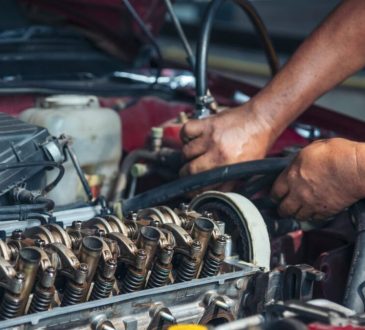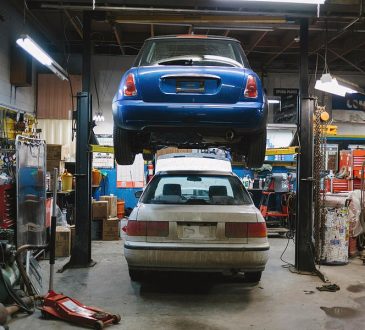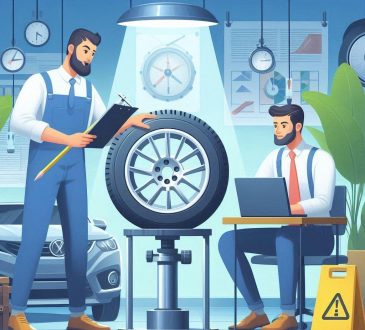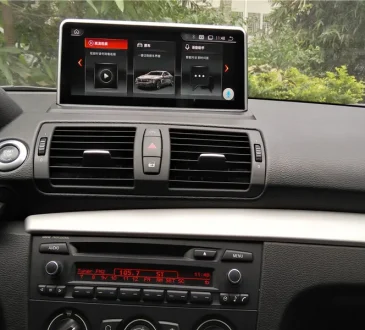
When it comes to maintaining your car, there are parts that are important and there are parts that are vital. Brake pads are some o the most vital of the components that are considered to be normal wear items.
This is because they create the friction that helps your vehicle come to a stop when they’re pressed against the brake rotor (also known as the brake disc). And in some cars, the brake pads press against the brake drum that rotates with the wheel.
So, how often should brake pads be changed? Ultimately, they need to be replaced before they lose their effectiveness. But that’s obviously not a great or concrete answer.
If you’re a driver, then it’s in your best interest, as well as the interests of your passengers and fellow drivers, to make sure that your brake pads are working properly. So continue reading and we’ll walk you through everything you need to know about changing your brake pads.
Brake Pads Wear Out
Whether the brake pads on your car are made out of organic, composite, metallic, or ceramic materials, they’re going to lose a small amount of material each time they get used. Eventually, your brake pads will wear thin. And this means that they won’t be able to generate the heat that’s caused by friction as powerfully.
When that happens, they won’t be as effective at quickly stopping the car. This could then increase the amount of distance that you need in order to make a safe stop.
When your brake pads wear out completely, you’ll suddenly be inundated with a variety of costly and dangerous problems.
If you’re noticing that your brakes aren’t being as responsible as they used to be, the pedal feels different after you’ve been driving down a long mountain pass or after you’ve been driving in traffic for a while, or that they fade quickly, then it might be time to get new brake pads.
It should also be noted that even when you’re in normal driving, your brakes may feel fine until something else lets you know that it’s time for them to be replaced.
Brake-Wear Warning Signs
Some vehicles come with brake pad sensors that let you know via a message that shows up during startup or a light in the dashboard that your brake pads have worn down. There are also brake systems that let you know it’s time for maintenance by screeching or squealing when they get too thin. While this sound might be unpleasant to hear, it’s generally harmless.
The sound is caused by a metal scraper that’s connected to the pads and specifically acts as a warning alarm. If the noise sounds like more of a grinding and grumbling sound rather than a screech, the pads at one or all of the wheels may be gone altogether. Continuing to use those brake pads could cause severe damage to your car’s rotors.
This isn’t the kind of sound that you should be hearing and if you do hear it, you’ll have to take your car to a brake shop as soon as you can. Of course, it’s better to replace the pads before you even get to hear those kinds of sounds.
How Often Should Brake Pads Be Changed?
Generally speaking, your brake pads should be replaced after around 50,000 miles. However, some brake pads can last as long as 70,000 miles while others need to be changed after only 25,000. You should consult the owner’s manual in order to get a more accurate number.
In order to make sure that your vehicle is always able to stop as safely and quickly as possible, it’s always better to change your brake pads sooner rather than later. At every oil change, you should get your brake pads inspected because brake pad life can vary greatly. A lot of it depends on your driving style and if your vehicle is driven regularly in heavy traffic or hilly roads.
You should also replace your brake pads when they reach their service limit, which tends to be around 0.1 inches.
Factors That Can Affect Brake Pad Lifespan
When it comes to how often you should be changing your brakes, there are certain factors that will come into play. For example, one major factor is your driving habits.
How hard your push your brakes will have a big impact on how long the pads last. Some drivers will ride their brakes and then stop abruptly while others prefer to gently ease into a stop. Gradual and smooth braking will increase the lifespan of your pads, but you should always stop abruptly when safety calls for it.
Environment is another big factor. Due to traffic lights and rush hour traffic, driving in a city will be harder on your brakes than driving on long, straight roads. This is because you’ll be engaging with your brakes less often.
Driving in hilly areas with steep elevation changes can also quickly wear down your brakes because you’ll likely have to ride the brakes to control your downhill speed.
The Importance of Knowing When to Replace Brake Pads
As we can see, brake pads play a crucial role in proper car functioning. And by knowing how often should brake pads be changed, you can drive more effectively and safely. Remember, when it comes to vehicle maintenance, it’s always better to be safe rather than sorry.
Are you interested in reading other helpful articles? Check out the rest to our blog today for more!




